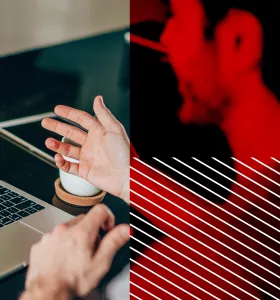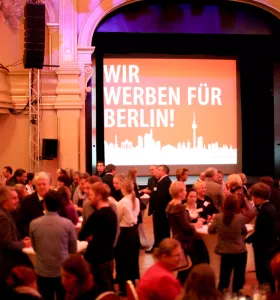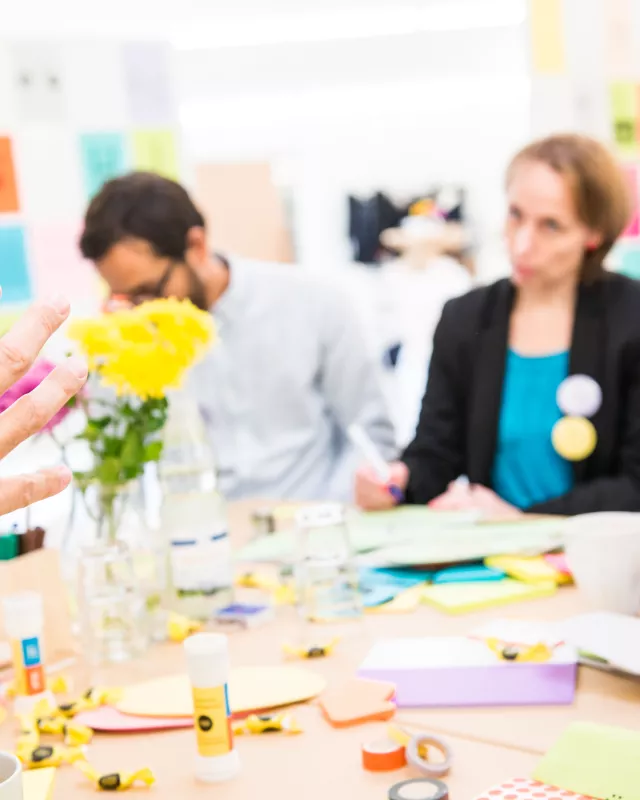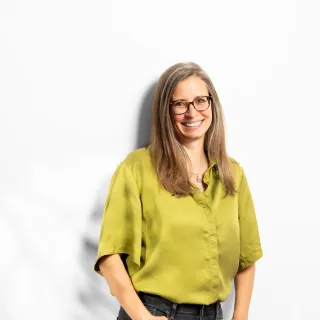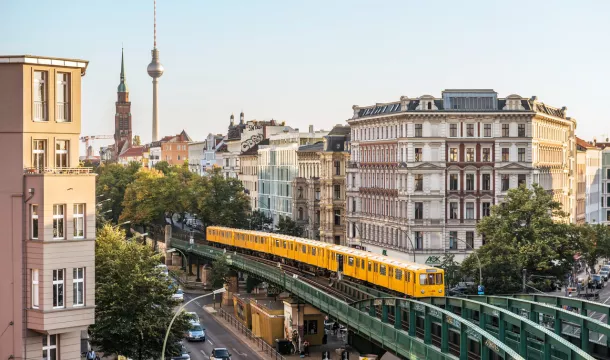What is quality tourism in Berlin?
- for visitors: Experience Berlin positively
- for Berliners: Encounter and participation
- for society: minimising environmental damage
- Goals and indicators at a glance
Quality tourism is an essential pillar of the State of Berlin's 2018+ tourism plan: Tourism is to become more city-compatible and sustainable. It is therefore expected to play a more significant role in Berlin in the future. visitBerlin therefore launched a project to develop a definition under sustainability aspects.
Quality tourism will continue to provide the framework for targeted marketing of Berlin as a destination. A central measure is the definition of suitable target groups that reflect city compatibility as well as economic potential. A newly developed research approach for the development of target groups was selected for Berlin.
Definition
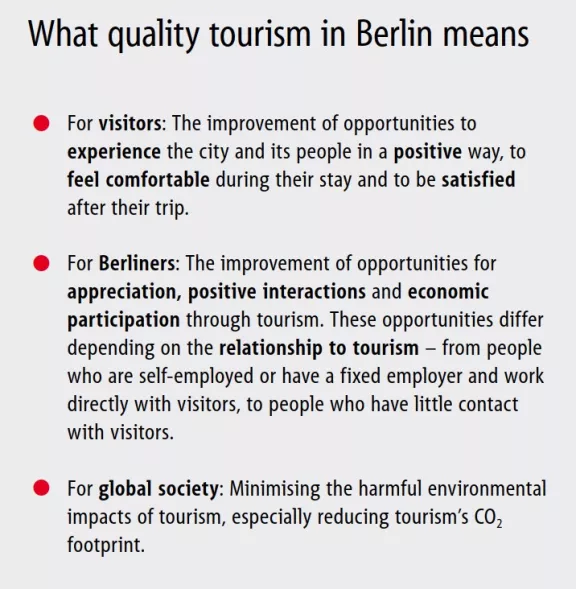
The central question of Quality tourism: What contribution can tourism make to the people who live in Berlin?
The goal is to increase the quality of life: tourism should increase the social and economic benefits from tourism and minimise the ecological footprint of tourism. Social and ecological benefits arise from good coexistence and enriching encounters between Berliners and guests and from a fair distribution of costs and benefits from tourism.
Quality tourism will continue to provide the framework for the targeted destination marketing of Berlin. A central measure is the definition of suitable target groups that reflect sustainability, city compatibility as well as economic potential. A newly developed research approach for the contemporary development of target groups was selected for Berlin. The development of the target group segmentation will take place in the course of 2021 ff. as the basis will be collected from data from current visitor surveys.
Four objectives have been derived from the definition. For each of the objectives, concrete indicators were identified to make it measurable.
The definition can be found in this handout.
Objectives
Four objectives have been derived from the definition. These objectives are used to formulate specific operational tools and control indicators.
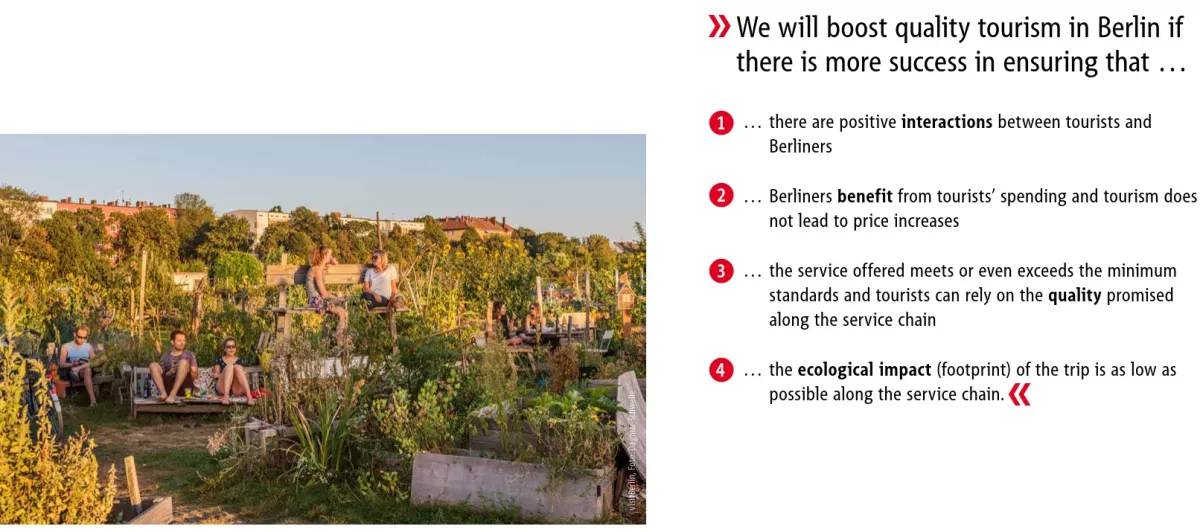
Indicators
For each of the four objectives, specific indicators have been identified to make the implementation of the concept measurable and traceable.
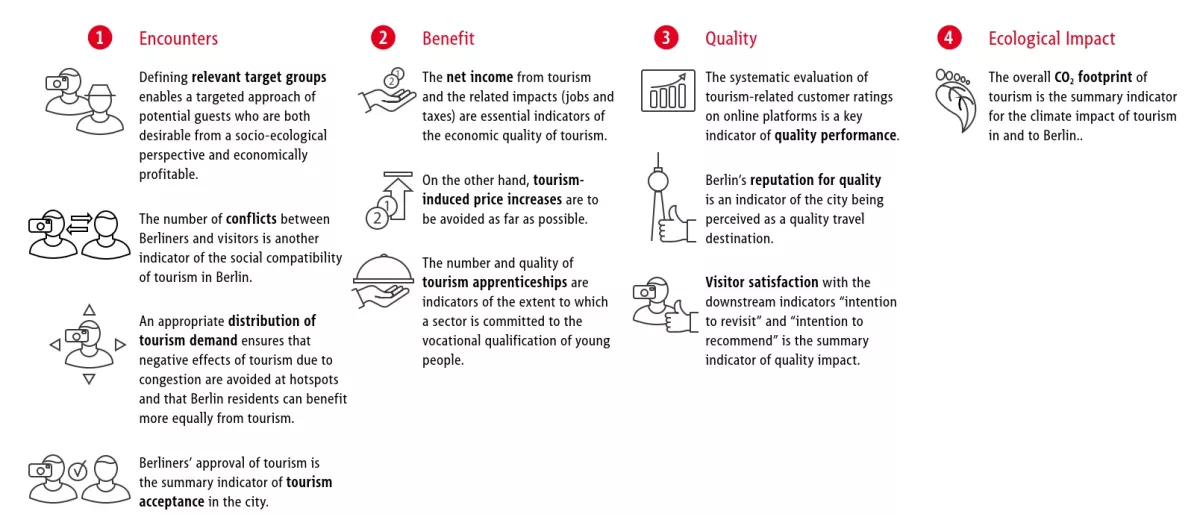
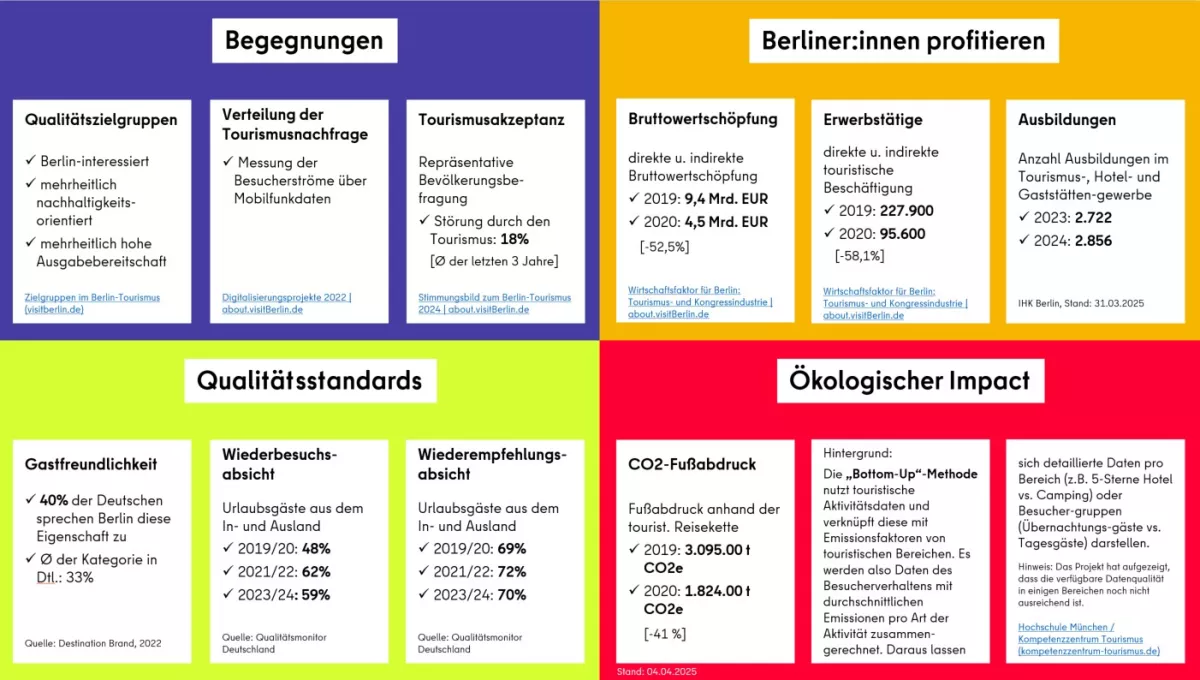
Tools
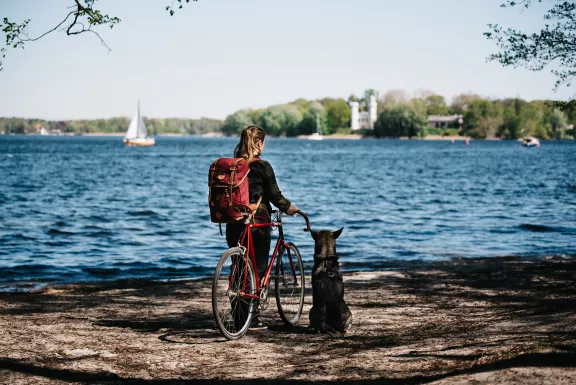
Established measuring tools are already available for some of the indicators mentioned; others need to be redeveloped or further developed. The definition of the KPIs (Key Performance Indicators) and the development of the measuring tools are the next steps. visitBerlin is working together with the industry on sustainable and city-compatible tourism for Berlin's future.
Implementation at visitBerlin
The aim of visitBerlin is to increase the share of quality tourism.
An essential tool for this is addressing suitable target groups in Berlin marketing (target group segmentation).
We want to attract people to Berlin who will contribute to achieving our goal. This means that we address people who have a vested interest in the city, who want to experience its atmosphere, its culture, its unique history. The focus of their interest is the city, not specific activities.
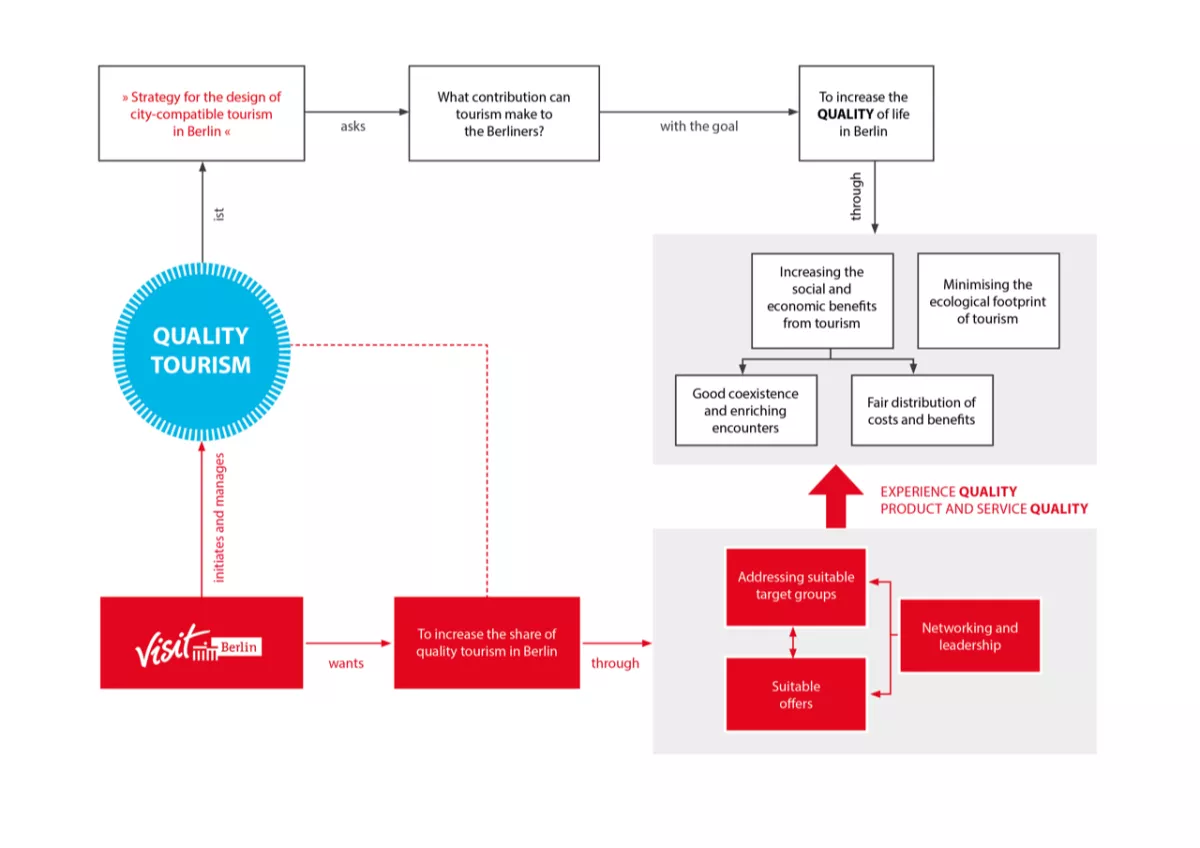
Further information
The project results were presented at TourismusHub, our e-learning tourism platform for Berlin
- TourismusHub: information only available in German; free registration required
- Module 1: Definition of quality tourism for Berlin (March 2021)
- Module 2: Target Group Segmentation/ Basics: Towards an Urban Compatible Tourism (April 2021)
- Module 3: Target Groups in Berlin Tourism Marketing (December 2021)
Process
Workshops and surveys with stakeholders from Berlin's tourism and congress industry, politicians and representatives from Berlin's state and district administration and the city's population were part of the process. The definition emerged from these findings, supplemented by scientific analyses and data.
visitBerlin is working together with the industry on sustainable and city-compatible tourism for the future of Berlin. We invite all interested parties to participate in the further process. If you are interested, please contact us.
This project is funded by the Senate Department for Economic Affairs, Energy and Public Enterprises.
